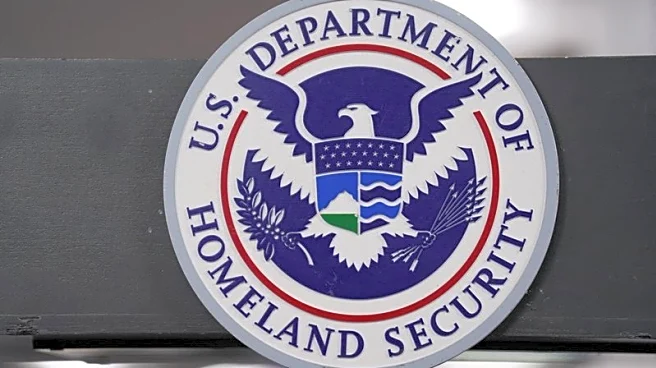What's Happening?
Federal Reserve Governor Lisa Cook is preparing to sue President Trump to prevent her removal from office. Cook's lawyer, Abbe Lowell, stated that Trump's attempt to fire her lacks legal basis and is an unprecedented move that could end up in the Supreme Court. The Federal Reserve has expressed its commitment to abide by any court decision, emphasizing its independence from political influence. Cook, appointed by President Biden in 2022, is the first Black woman to serve as a Fed governor. The controversy stems from allegations of mortgage fraud, which Cook denies, asserting that Trump has no authority to remove her.
Why It's Important?
The legal battle over Cook's removal could have significant implications for the Federal Reserve's independence, a cornerstone of its ability to manage monetary policy effectively. If Trump succeeds, it may set a precedent for increased presidential influence over the Fed, potentially undermining its ability to make unpopular but necessary decisions, such as raising interest rates to combat inflation. This could lead to higher borrowing costs for consumers and businesses, affecting the broader economy. The case also highlights tensions between the executive branch and independent agencies, raising questions about the limits of presidential power.
What's Next?
Cook is expected to seek an injunction to continue her duties while the legal proceedings unfold. The case may prompt discussions in Congress and among legal experts about the interpretation of 'for cause' removal under the Federal Reserve Act. The Supreme Court's decision could redefine the balance of power between the presidency and independent agencies. Stakeholders, including financial markets and political leaders, will closely monitor the situation, as it could influence future appointments and the Fed's policy direction.











